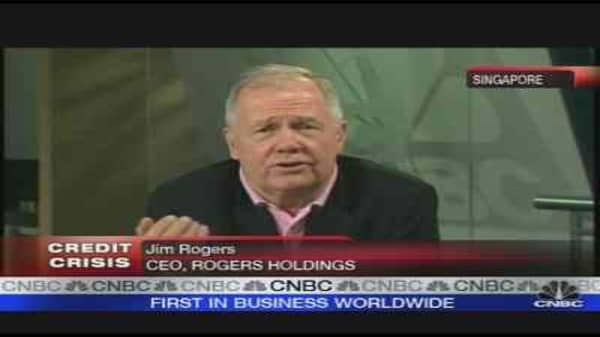“Those hoarding cash are highly unlikely to go out and buy something,” says David Resler, chief economist at Nomura International. “We now have massive asset price deflation," from securities to real estate to commodities.
Rupkey says more money is certainly not “showing up in bank deposits.”
Bivens says the liquidity is pumping potential purchasing power into the system, not actual power.
Disinflation, not inflation, is now the operative condition largely because of the bursting of the commodities bubble. Prices continue to increase but at a lesser pace.
Economist Ram Bhagavatula, managing director at the hedge fund Combinatorics Capital, says the “recession will be pretty serious” and thus depress production and demand, which relieve wage and price pressures.
A conventional recession and the credit crunch, however, also have the potential for creating deflation, or falling prices.
“A credit crunch means consumers and businesses are not able to spend the money they would spend,” says Bivens. “We use debt for a lot of consumption.”
The classic deflationary spiral involves declining demand as consumers await lower prices. That in turn results in a decline in production and payrolls, which depresses demand even further, requiring yet more price cuts.
“The downward pressure on prices will be limited,” says Resler, who adds that if goods and services become cheaper, it’s likely to “encourage buying.”




